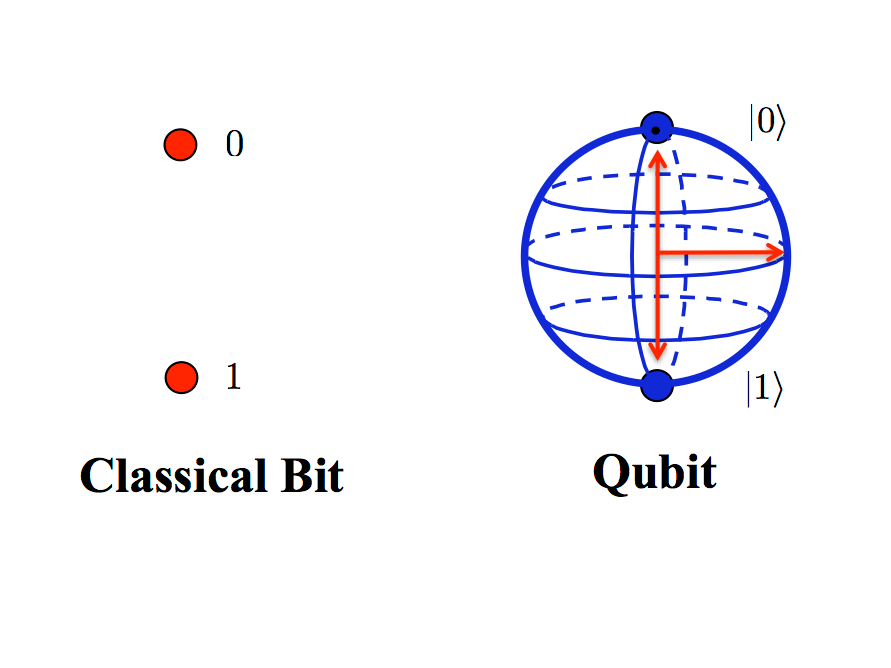
‘QUANTUM APOCALYPSE’: HOW ULTRA-POWERFUL COMPUTERS COULD CRIPPLE GOVERNMENTS AND EFFECTIVELY BREAK THE INTERNET
A new era of unfathomably fast computers is just a few years away, with quantum computers set to transform the way we communicate, cure disease, and even solve problems previously thought impossible.
But some computing experts fear functional quantum computers could also effectively break the internet as we know it.
Recent progress made by Google means their arrival could be sooner than expected. A leaked research paper suggests the company has achieved what is known as quantum supremacy, whereby a quantum computer performed a calculation that was far beyond the reach of today’s most powerful supercomputers.
First theorised by the physicist Richard Feynman in 1982, quantum computers combine the peculiar properties of quantum physics with computer science to achieve processing power that is exponentially more powerful than traditional computers.
Instead of using traditional bits – the ‘1’s’ and ‘0’s’ used to store and transfer data – quantum computers use quantum bits or qubits. These exist in a state of superposition, meaning they can act as both a ‘1’ and a ‘0’ at the same time.

By not being restricted by a single binary state, each new qubit added to a quantum computing system makes it exponentially more powerful than its traditional counterpart.
In order to function, qubits need to be kept in extremely cold temperatures – close to Absolute Zero (-273C). This makes them both impractical and extremely costly to develop, but the potential advances that could be made mean the likes of Google, Nasa and the CIA are all attempting to build one.
If Google’s leaked paper is to be believed, the technology giant may be leading the race to build this revolutionary new form of computer. A calculation that would take a traditional supercomputer approximately 10,000 years to perform, took Google’s 72-qubit computer just 200 seconds.
The paper stated: “This dramatic speed-up relative to all known classical algorithms provides an experimental realisation of quantum supremacy on a computational task and heralds the advent of a much-anticipated computing paradigm.”
But such power may come at a huge price. Tim Callan, a senior fellow at cybersecurity firm Sectigo, warns that the advent of these era-defining machines could result in what he refers to as a “quantum apocalypse”.
At threat are the current encryption technologies used in everything from popular messaging apps like WhatsApp, to online banking transactions. These RSA and ECC encryption systems are what prevent all of our data from being exposed to cyber criminals, hackers and spy agencies.
Government, education, business and healthcare data could all be compromised by quantum computers, as they will be orders of magnitude faster than the calculations needed to break this encryption.
“While no one can definitively say when quantum computers will reach the point of defeating RSA and ECC, many estimates place that date in the next 10 or 15 years,” Mr Callan tells The Independent.
“Our modern systems of finance, commerce, communication, transportation, manufacturing, energy, government, and healthcare will for all intents and purposes cease to function.”

Beyond crippling governments, economies and critical infrastructure, some believe the arrival of quantum computers could also herald the end of cryptocurrencies like bitcoin.
The technological foundations of bitcoin rely on an advanced form of cryptography that protects the underlying blockchain network from being hacked. The risk posed by quantum computers is that their power could theoretically render such protection impotent.
UK cybersecurity firm Post Quantum has described bitcoin as “definitely not quantum computer proof“ and warned that if measures are not put in place, then “bitcoin will expire the very day the first quantum computer appears”.
Fortunately, there may be a solution. Work is currently underway to create quantum-resistant algorithms that would protect against the end of our digital world as we know it.

Leading the effort to identify new ways to encrypt data is the National Institute for Standards and Technology (Nist) in the US. More than 20 potential algorithms are already being scrutinised by the agency, though it is too early to know if even one of them is suitable for the task.
The biggest challenge…

















